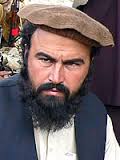
At least six people were killed in a drone strike Wednesday in northwest Pakistan, reportedly including a top Pakistani Taliban official, in the first publicized US drone attack since President Barack Obama announced he was changing policy on such strikes.
According to multiple reports, Wali-ur-Rehman, the second in command of the Tehreek-e-Taliban Pakistan, was killed in the attack in North Waziristan, a militant stronghold. The drone reportedly fired two missiles into a mud house in the village of Chashma, killing at least six and wounding four others. Reuters reports that Mr. Wali-ur-Rehman had been poised to succeed TTP leader Hakimullah Mehsud.
“This is a huge blow to militants and a win in the fight against insurgents,” one security official told Reuters, declining further comment.
RECOMMENDED: How much do you know about Pakistan? Take this quiz.
The Pakistani Taliban are a separate entity allied to the Afghan Taliban. Known as the Tehreek-e-Taliban Pakistan (TTP), they have launched devastating attacks against the Pakistani military and civilians.
Reuters reports that the Pakistani Foreign Office expressed concern over the attack, stating that “Any drone strike is against the territorial integrity and sovereignty of Pakistan and we condemn it.” Reuters notes, however that the comment was made before Wali-ur-Rehman had been identified as a casualty.
Pakistani newspaper The News International reports that the TTP denied that Wali-ur-Rehman was killed.
The drone strike comes at a precarious time for both Washington and Islamabad. Last week, President Obama announced that the White House had codified new policy guidance on the use of lethal force against terrorists, including the use of drones, The Christian Science Monitor reported.
Generally speaking, the US government has to determine that a potential drone target poses a “continuing and imminent threat to the American people,” the president said.
Drones can be used only if the US can’t capture individual terrorists.
“Our preference is always to detain, interrogate, and prosecute them,” Obama said.
And finally, before any strike occurs, there must be “near certainty” that no civilians will be killed or injured, according to the president.
Experts note, however, that at least rhetorically, the president’s guidelines match what has been said before about US drone policies, and it is unclear whether this announcement marks a change in process – particularly as most of the relevant information on drone policy remains classified.
At the same time, Pakistan is in an interim period between its recent presidential election and the formation of a new government led by Nawaz Sharif, who “has made it very clear through the election campaign that he wants all drone strikes to stop all together,” reports the BBC’s Richard Galpin.
“The plain fact here is that the drone strikes are extremely unpopular, the vast majority of the population opposed to them – recent research showing two-thirds of them, of the population were opposed to them. Nawaz Sharif, I think is pretty much obliged to bring this issue up in negotiations with the American government to see if he can persuade them to stop the strikes.”
But at the same time, says the BBC’s M Ilyas Khan, “any strike against the Pakistan Taliban would be welcomed by the Pakistani authorities because the group has for several years been exclusively focused on pursuing Pakistani – rather than Afghan – military and civilian targets.”
Our correspondent says it comes on the same day that the newly-elected parliament of Khyber Pakhtunkhwa province – which adjoins North Waziristan – holds its first meeting.
The province is now being ruled by former cricketer Imran Khan’s PTI party, which has in recent months repeatedly spoken out against drone attacks, as has Prime Minister-elect Nawaz Sharif.
